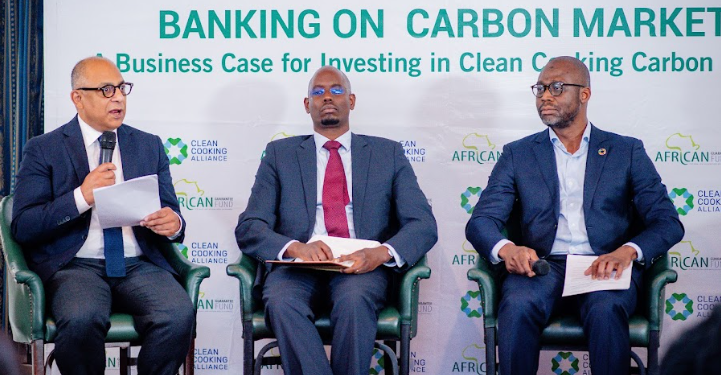Organizations led by the Kenya Bankers Association (KBA) and Africa Guarantee Fund (AGF) are rooting for more funding to Small and Medium Enterprises (SMEs) in clean cooking businesses to scale up operations across the country.
Small and Medium Enterprises (SMEs) are tapping on the abundance of natural resources such as solar to offer cooking alternatives to many households, other environmentally friendly cooking alternatives on the rise are biogas and LPG easing pressure on traditional sources of energy such as charcoal and wood.
However, many face financial challenges needed to scale up the energy alternatives to remotest parts of the country.
Speaking in Nairobi on Tuesday, Kenya Bankers Association noted the potential of the clean cooking alternative’s in reducing carbon emission. Samuel Tiriongo, Director of Research and Policy, Kenya Bankers Association called on local banks to work with the Small and Medium Enterprises through funding to promote their businesses further. He noted that the move will also help the banks participate in protecting the planet from the current climate crisis.
“Beyond the financial returns, financial institutions are committed to planet sustainability, they should explore innovations and opportunities in the clean cooking energy to further decarbonize the planet,” he said.
Patrick Lumumba, Group Director of Capacity Development at AGF noted that the clean cooking sector provides an effective market entry strategy for banks, given its low CAPEX requirements and faster payback period relative to carbon removal projects and projects in other sectors.
Clean cooking also complements the “social” obligations of banks’ ESG priorities because investments offer a unique pathway for positive impacts on emissions reductions, deforestation, health, and women’s empowerment.
To assist banks in making these transitions, African Guarantee Fund (AGF) through the Partnership Platform for Clean Cooking Finance, in association with the Kenya Bankers Association (KBA), on Tuesday offered a one-day orientation workshop.
The workshop enabled senior bank managers to better understand opportunities and risks in carbon markets in Kenya, and the business case for investing in clean cooking carbon projects as a strategic entry point to carbon markets.
Among other lessons include support services available from the Global Financial Sector Partnership for Clean Cooking to de-risk lending to clean cooking carbon projects.



